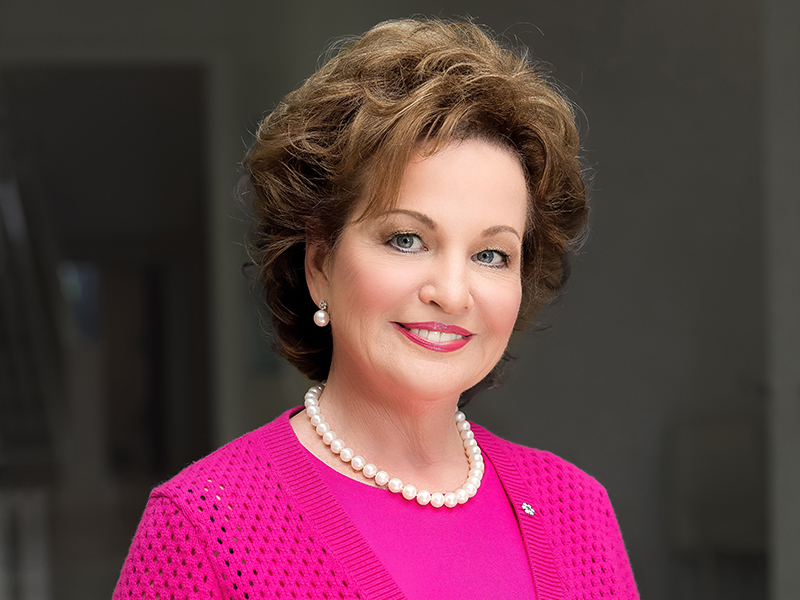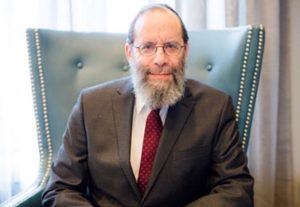Julia Koschitzky, a communal volunteer extraordinaire and philanthropist who lent her name and resources to a plethora of domestic Jewish and Israel-related causes, died at her Toronto home on March 21 of cancer. She was 78.
She was known widely for her poise and graceful presence, and for over four decades, her name seemed to be everywhere, it seemed, notably at big-ticket communal institutions like UJA Federation of Greater Toronto and United Israel Appeal. Throughout, her main passion was Jewish education.
Israeli President Isaac Herzog remembered her as “a dear friend whose noble voice will be sorely missed throughout the Jewish world.”
“Her decades of contribution to the State of Israel, to Keren Hayesod and to the Jewish Agency for Israel improved the quality of life of countless individuals and communities, which Julia so enthusiastically supported. She never shied away from a challenge, and always saw the virtue of those around her. Julie was an insightful thinker, and a warm, fine human being,” the president wrote in a letter to the Koschitzky family.
Condolences on her death also included one from Nachman Shai, Israel’s Minister of Diaspora Affairs, who lauded a “strong, inspiring, and generous woman.”
“In many ways, Julia personified Canadian Jewry’s unshakable relationship with Israel,” said Shai. “I and the State of Israel are deeply grateful for her incredible devotion to the Jewish people and the strengthening of the bonds between us.”
Israel’s consul general in Toronto, Idit Shamir, tweeted condolences, saying Koschitzky’s leadership and devotion to the Jewish community and Israel “will always be remembered.”
Koschitzky’s involvement in communal life began in 1979 when she assumed the presidency of the Parents’ Association at Associated Hebrew Day Schools, where she and her husband Henry enrolled all four of their children. She went on to serve on the school’s board of governors and worked to make day schools more affordable by establishing, in 2013, UJA Federation’s Julia and Henry Koschitzky Centre for Jewish Education, which provides tuition assistance and a variety of programs for children and young adults.
In a statement, Ora Shulman, Head of School at AHS, said the quality she will associate with Koschitzky is “the grace with which she presided over any setting in which we encountered her. She radiated care and calm.”
In a 2017 interview with The CJN, Koschitzky acknowledged challenging times for Jewish education. Enrolment at non-Orthodox schools was down, despite a growing Jewish community.
“The commitment of families towards sending their children for a formal Jewish education, which builds strong identity and guarantees the future of Jewish life, really has lessened,” she noted. “That’s also coupled with the rising cost of Jewish education, at a rate of 2-1/2 times the cost of living.”
Much of Jewish philanthropy goes to non-Jewish causes, she pointed out. “If it would be redirected to Jewish education, the cost (of education) would not be an issue.”
She felt that Jews who came to Canada at the turn of the 20th century had their priorities right. Despite widespread poverty, they managed to build a foundation—synagogues, day schools, benevolent organizations, theatres, and newspapers.
“It was a rich Jewish life in poor times,” Koschitzky said. “Now when I think of the incredible wealth there is in our community, and that we should be facing such hardship with keeping Jewish schools afloat, it’s a very depressing time.”
After 12 years on the Associated parents’ council, Koschitzky agreed to chair Toronto UJA’s 1985 women’s division campaign to engage more Orthodox women. In 1988-‘89, she co-chaired the general Toronto UJA campaign.
“I owe a great debt of thanks to the UJA because I felt that was where I was taught and nurtured,” she told The CJN. “That led me to so many extraordinary experiences. The more involved I became, the more I learned, and the more I learned, the more I saw and understood the scale of Jewish needs here and in Israel and around the world.”
She served for eight years as an officer of UJA Federation of Greater Toronto and, from 1990 to 1992, as president of UIA (United Israel Appeal)/Federations Canada, where, according to the Jewish Women’s Archive, she helped shape the relationship between Canadian Jewry and Israel, and played “a central role” in Operation Exodus, the rescue and resettlement of thousands of Jews from Russia to Israel.
UIA raised more than $100 million from Canadian Jews for Operation Exodus, in addition to contributions from the annual UJA campaign. She likened the response to the rescue of former Soviet Jews to the 1967 Six-Day War. Both showed, “as never before, that Jewish people can be united.”
She became a member of the Board of Governors of the Jewish Agency for Israel in 1990, and from 1992 to 1997, Koschitzky chaired the Keren Hayesod (United Israel Appeal) World Board of Trustees. She also served as a trustee of the Jewish Telegraphic Agency (JTA) and was a board member of The CJN (where she strongly favoured a return to a print edition when the paper came back in January 2021 in digital form only).
In 1998, Koschitzky chaired the Toronto celebrations of the 50th anniversary of Israeli statehood, featuring then prime minister Jean Chretien as guest speaker.
At York University, where Julia was a trustee, she and her husband established the Koschitzky Family Chair in Jewish Teacher Education. With Henry’s brother, Saul and sister-in-law, Mira, the couple established the Israel and Golda Koschitzky Centre for Jewish Studies, Canada’s first interdisciplinary research centre in the subject.
In its tribute, York recalled “an extraordinary woman devoted to the causes of philanthropy, Jewish education, and social welfare.”
In a joint statement on Koschitzky’s death, Linda Frum, chair of UJA’s board, and Adam Minsky, UJA’s president and CEO, reflected that “to spend time with Julia was to be in the company of a truly great leader whose example motivated each of us to become our better selves. Whether it was a kind word of encouragement, a principled decision at a defining moment, or a readiness to step forward when leadership was needed, when Julia led, it elevated everyone around her to a whole new level.”
They too extolled Koschitzky’s “incredible kindness, wisdom, and humility.”
The Centre for Israel and Jewish Affairs (CIJA) saw “an extraordinary leader who had a deep love for Judaism, for the Jewish people, and for Israel. She invested time, enormous effort, and generous philanthropy in service of her fellow Jews and fellow Canadians. She was a role model for many, including young Canadian Jewish student activists and women in Jewish communal life. She led by example, with her children also taking on significant leadership roles.”
Koschitzky was born in 1943 in Cardiff, Wales, the daughter of Max Podolski, who was from Poland, and the German-born Elli Moses. The Jewish Women’s Archives relates that her parents, who worked together in business, fled Germany in 1939 for Wales, where they had business interests, leaving for Canada in 1949 and settling in Toronto in 1956.
“My sister and I grew up in a very traditional home,” she recalled for the Jewish Foundation of Greater Toronto. “From our parents, we learned a love of Judaism and the importance of giving, not only financially, but of ourselves.”
In 1963, during her last year of high school, Julia married the Polish-born businessman Henry Koschitzky, whose family came to Canada after living in exile in the Soviet Union during the Second World War.
Among her many accolades was an honorary doctorate from Yeshiva University in 2003 and the Order of Canada in 2015 for her promotion of education and interfaith dialogue.
In later years, she was involved with the Jerusalem Foundation, which raises funds for social, cultural and beautification projects in the Israeli capital.
Koschitzky is survived by her husband Henry; children Sarena, Hartley, Jonathan, and Leelah; 19 grandchildren; 11 great-grandchildren; and a sister, Jeannette Massouda. She was scheduled to be buried in Beit Shemesh, Israel on March 23.
Koschitzky once said she had grown in every volunteer position she took on, all with a view to the future. “What we do in our community sends a message to our children, to future generations,” she said in 2017. “My children are involved, whether it’s here or in New York or in Israel. Everybody does something because they saw the joy in how it fulfills your life, that you’re doing something not just for yourself but also for others.”







